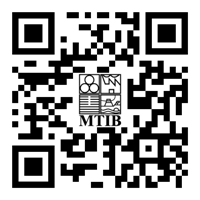Malaysia - Chile Free Trade Agreement (MCFTA)
Background
Malaysia-Chile Free Trade Agreement (MCFTA) is the first bilateral FTA between Malaysia and a Latin American country came into force on 25 February 2012.
The FTA was signed by YB Datuk Richard Riot Anak Jaem, Deputy Minister of Foreign Affairs, Malaysia and Hon. Alfredo Moreno Charme, Minister of Foreign Affairs, Chile on 13 November 2010 in Yokohama, Japan.
The negotiations were concluded in May 2010 after its first round of negotiations which commenced in June 2007. MCFTA marks Malaysia’s fourth bilateral free trade agreement.
Scope
MCFTA encompasses liberalization in trade in goods as well as enhancement of bilateral economic cooperation.
Commitments are made in specific chapters in the MCFTA to facilitate Trade in Goods include areas of:
- Tariffs;
- Rules of Origin (Roo);
- Sanitary and Phyto-Sanitary Measures (Sps);
- Customs Procedures; and
- Technical Barriers to Trade (Tbt).
- Legal issues; and
- Trade Remedies.
An FTA between Malaysia and Chile, in the long term, offers opportunities to strengthen trade and investment linkages by:
- Enhancing Malaysia's market share in Chile;
- Facilitating two-way investment flows in areas of common interest; and
- Creating potential for Malaysian traders and investors to expand to other Latin American markets.
Malaysia and Chile have agreed to progressively reduce or eliminate tariffs on their respective industrial and agricultural products.
Chile undertook to:
- Fully eliminate import duties for 6,960 tariff lines from the date of entry into force for products that include video recording apparatus and data processing machines (electrical and electronic items), vulcanized rubber thread and cord, surgical gloves, vegetable fats, cocoa butter, fats and oil and parts of aircraft.
- By 2015 (Year Three) further eliminate tariff on 355 tariff lines that include palm oil, cocoa powder containing added sugar, rubber gloves, textile, apparel and clothing accessories, footwear, ceramic tiles, paints and varnishes, ceramic sanitary products, glass and glassware, paper products, machinery equipment, wooden furniture products.
- By 2017 (Year Five) further eliminate tariff on 313 tariff lines for products such as examination gloves, palmatic acid and stearic acid, paints, polypropylene and polyethylene, wooden frames and pallets, tyre flaps, float glass, ceramic wares, chemical products, plastic products, iron and steel bars and rods, rubber products, wood products, footwear and motor vehicles.
- Fully eliminate import duties on 9,311 tariff lines upon date of entry into force
- By 2015 (Year Three) further eliminate 405 tariff lines on products such as vegetable oil, glycerol, floorcovering, plastic products, flooring materials of rubber, particle board, veneered panels, waterproof footwear, copper products, high pressure hydro-electric conduits and kitchenware.
- By 2017 (Year Five), reduce import tariff on 500 tariff lines further cap duties at 5% on items that include compounded rubber products, tubes, pipes ad hoses of vulcanized rubber, new pneumatic tyres, transmission belts, aluminum products, heavy vehicles including concrete-mixer lorries, mobile drilling derricks and fire-fighting vehicles.
- Chile - 96 tariff lines comprising wines and alcohol, tobacco, rice wheat or meslin flour, sugar, glucose and syrup, honey and used pneumatic tyres.
- Malaysia - 138 tariff lines comprising items such as explosives, ammunition, rice, tobacco and alcoholic beverages.
MCFTA sets out a comprehensive chapter on Cooperation to promote and enhance bilateral cooperation activities that facilitate trade and investment as well as the well-being of peoples of both countries.
Areas of cooperation which Malaysia and Chile have agreed to undertake include, among others research, development and innovation; science and technology; trade and investment; mining and mining related industry; small and medium enterprises; intellectual property; tourism; education and human capital development; culture; and promotion of investment.
Cooperative activities may include the development of joint research programs; exchanges of people and information; dialogues, conferences and seminars; and encouraging private sector cooperation.
Trade In Services
Both countries targeted to resume negotiations on the inclusion of Trade in Services by 2015.
 English
English 

 Bahasa Melayu
Bahasa Melayu